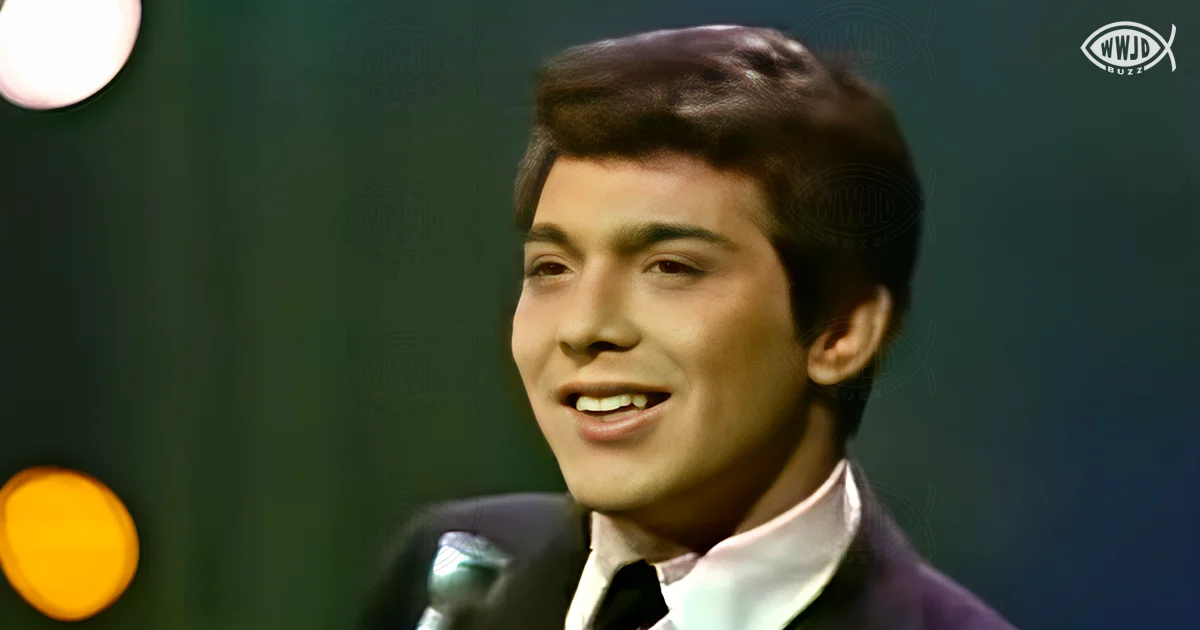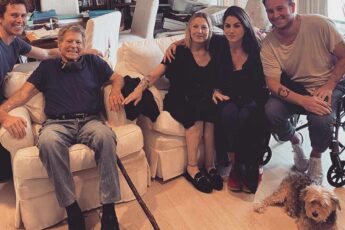Picture it: December 1961. The studio lights gleam, the audience is buzzing with excitement, and the air is thick with anticipation. It’s a Sunday night, and millions of households across America are tuned in to The Ed Sullivan Show, the nation’s most beloved variety hour. Tonight’s guest is a familiar face—a young man with a disarming smile, a signature pompadour, and a voice that seems to come straight from the heart. As Paul Anka steps onto the stage, you can almost feel the collective breath being held across the country.
Then he begins to sing.
The first notes of “Diana” float through the air, instantly recognizable and brimming with youthful energy. Written when he was only 15, the song carries the electric pulse of first love—the kind that keeps you awake at night, the kind that makes your heart race when you see her across the room. Anka delivers it with the same sincerity he had when he first penned the lyrics, and the crowd melts. Every word feels fresh again, even for those who’ve heard it a hundred times. There’s something timeless about the way he sings it—raw and honest, without pretense.
As the last chord fades, the atmosphere shifts. The lights dim just slightly, and Anka eases into “Put Your Head on My Shoulder.” It’s slower, softer, intimate. His voice lowers to a hush, as if he’s singing directly to one person, not the millions watching. It’s a song that doesn’t ask for attention—it earns it through tenderness. With each line, he invites you into a quiet moment, the kind shared between two people in love on a chilly night, wrapped in each other’s presence. The audience sways gently, some wiping away tears. It’s not just a performance—it’s a feeling.
But Paul Anka’s genius isn’t limited to the sweet side of love. There’s depth in his catalog, reflections on connection, fate, and even loneliness. When he sings “You Are My Destiny,” the tone grows more serious, almost reverent. The lyrics speak of something bigger than fleeting romance—something spiritual, fated. It’s not about the thrill of meeting someone; it’s about the recognition that they were meant to be in your life all along. He sings it like he believes it, and by the time the song ends, you do too.
Then comes “Lonely Boy,” a bittersweet highlight of the night. The audience cheers at the opening bars, knowing what’s coming. It’s a #1 hit for a reason—hauntingly honest, yet irresistibly catchy. Anka sings it with his whole body, voice cracking ever so slightly on the chorus. You can feel the ache behind the words, the sense of being seen and yet not known. It’s a reminder that fame doesn’t shield you from pain. If anything, it makes it sharper. And yet, in that vulnerability, there’s connection. Strangers feel understood, and that’s the true power of music.
As the evening draws to a close, Anka gives the audience one last gift: “My Home Town.” It’s soft, nostalgic, painted with sepia-toned memories of simpler days and familiar streets. You can see it all through his eyes—the corner store, the schoolyard, the faces he used to know. The song isn’t flashy. It doesn’t need to be. It’s heartfelt and grounded, a love letter to the places that shape us and the moments we never truly leave behind. It’s a perfect finale, reminding us that no matter how far we go, our roots always matter.
The curtain falls, and for a brief moment, the applause feels like it might never stop. People are on their feet, clapping not just for the songs, but for the feelings they’ve just experienced. That’s the magic of Paul Anka—not just his voice, not just his songwriting, but his ability to make every song feel like a personal story, a memory, a truth.
If you’ve never seen that 1961 performance—or even if you have—take the time to revisit it. Watch as Paul Anka turns a television stage into something sacred, something timeless. Let the music carry you back, not just to a different era, but to a place where feelings were big, love was earnest, and every note carried a little bit of someone’s soul.




